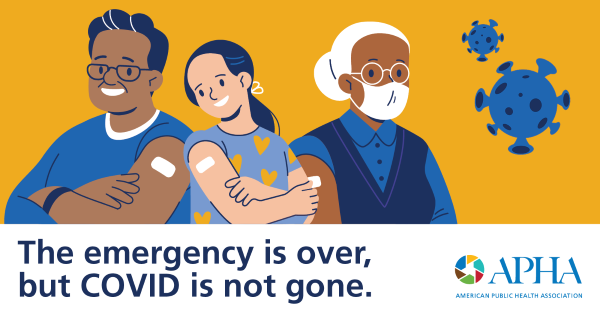COVID-19 is a disease caused by the SARS-CoV-2 virus that led to a global pandemic from 2020-2023. Most people who contract COVID-19 have cold or flu-like symptoms, with some cases leading to severe illness.
Over one million Americans died from COVID-19 during the pandemic. Many of these deaths were preventable and put a spotlight on health inequities, political polarization and public health underfunding that already existed in the U.S. and persist today.
What's Next
The federal COVID-19 public health emergency ended in May 2023, but the virus remains a threat. Prevention and treatment are key to keep our communities safe and healthy. Everyone eligible should get updated COVID-19 vaccines as they become available.

Feeling sick?
According to new CDC guidelines, people with respiratory symptoms should:
- Stay home until fever free for 24 hours without medications and symptoms are improving.
- For the next five days, take extra precautions when around others indoors.
Remember, COVID-19 vaccines are still free for everyone.
Access to testing and treatment will vary depending on insurance status.
The Bridge Access Program for COVID-19 Vaccines and Treatments provides funding to help maintain access to COVID-19 care for uninsured adults. Learn more and share about the program with this one-page overview (PDF) and talking points (PDF).
Find the most current information from the Centers for Disease Control and Prevention and the Department of Health and Human Services.
APHA Resources
Throughout the pandemic, APHA urged the public health community to share science-based information with the public and spoke out for outbreak response funding and support. See a selection of our resources: